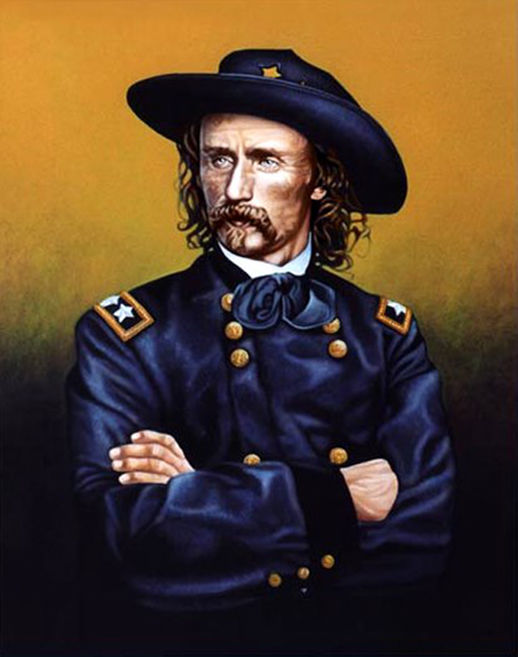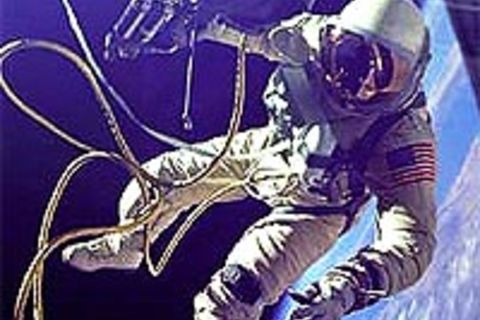My Friend, General George Custer

My Friend General George Custer - written by Gabriel Magno - 2009
My great grandfather wrote this memo in his dairy: I was a saloon owner in Eastern Montana in 1876. The saloon was frequented by local farmers, a few Indians and other town folks. Sometimes strangers passing through would come in to have a shot of whiskey or a beer. I had a piano and hired a pianist to play nightly. This helped to keep the customers there and drink more. I played guitar and sang. I often sang with the pianist.
One night, there was a commotion outside. Several customers including myself went out on the porch to see what was going on. We saw a several hundred army soldiers passing through, raising a cloud of dust. They stopped a short distance down the street. As the dust was settling, I watched as five soldiers walked through it towards the saloon, using their hats to beat the dust off their uniforms. I moved out of the way as they entered. Judging by their uniforms, they appeared to be officers. One officer had long curly blond hair, wore a hat and light tan leather gloves, and a rust colored bandana around his neck.
They walked over to an empty table and sat down. As one of the soldiers walked towards the bar, I walked behind it and asked him what I could get for him. He said he wanted five beers and three whiskeys. As I poured the drinks, I couldn’t help but ask what was going on. He said that there was a squadron of soldiers of the 7th Calvary outside needing beer for the camp that night. I asked him who the man was with the fancy boots and gold trimming on his uniform. He said it was general George Custer.
He pointed to the sign behind the bar which read "Positively No Whiskey Sold To Indians". I told him it was because alcohol made the Indians violent. He laughed and asked me how much beer I had on hand. I told him four barrels, each holding 20 gallons. I told him it was my weekly supply. He said he wanted to buy them all. I told him I couldn’t sell the actual barrels but I could sell him the beer. He said to bring it to their camp that night. He gave me a crude map and drew an X to mark the camp. He asked how much. I told him $80. He opened a pouch, pulled out the money and handed it to me. He said to bring the beer at 7 p.m.
The officers were drinking and talking at the table when I went up to the pianist with my guitar and sang a couple of songs. I was surprised to hear all the officers applaud when I was done. As they left, general George Custer came up and shook my hand and thanked me for the fine music.
That night, I delivered the four barrels of beer to the camp. Soldiers took the barrels off the wagon and poured the beer into horse troughs they apparently cleaned for this event. The soldiers lined up with their canteens and scooped up their share of beer, then sat next to the camp fire.
Also sitting by the camp fire were several officers and general Custer. When he saw me getting ready to leave after the soldiers put the empty barrels on the wagon, he waved me over. He asked me if I brought my guitar. As I presumed I would sit with them and play some tunes, I told him I did. He asked me to get it and sit with him. I was honored and thrilled. I sat with the general as we sang some patriotic and spiritual songs. Of some of the songs, I remember we sang "When Johnny Comes Marching Home" and "Amazing Grace". We also talked about where we grew up and what our childhood was like. I couldn’t believe how it felt like we were two friends sharing the past. After a while, he stood up and said that tomorrow was a very important day and he was going to retire now. He thanked me once more for bringing the beer and for the wonderful music. I left with a smile on my face, thinking that although Custer sang out of tune, his heart was in every word.
Several days later, I heard the terrible news. I wept like a child. I’ll never forget the short friendship I made with my friend general George Custer, a great general who could sit with a common man and make him feel important.
Like 0 Pin it 0


